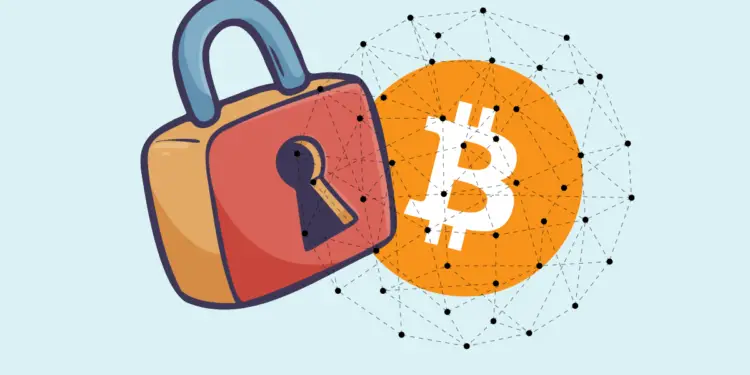Cryptocurrencies, often leveled digital gold mines, have provided lucrative returns, but they have been vulnerable to hacks, despite being decentralized and secure.
For context, as per the Crypto Crime Report, hackers stole $3.7 billion of crypto in 2022 —one of the biggest thefts ever. Astonishingly, within a year, the funds stolen have decreased by 54.3% in 2023. It’s happening because investors are becoming aware of vital moves to keep their digital coins secure.

However, many crypto investors still seem to be missing the right steps.
Let’s assist them in securing their crypto.
Here’s a guide on how to keep your crypto safe.
Exchange default wallets are risky.
After buying, we often just leave the cryptocurrency there in the exchange’s wallet, and you might call a bank for your cryptocurrency. But, just like a bank can be vulnerable to robbery, these exchanges can be vulnerable to hacking. However, despite how careful your exchange is, there are many other places online where hackers might try to break into and steal all the data linked to your cryptocurrency.
Therefore, 360-degree awareness is required. Before purchasing and putting in crypto at the exchange’s wallet, get all the necessary information you can to identify the wallet’s legitimacy. If you spot red flags, withdraw crypto from your exchange.
Different ways to secure your Crypto
Understanding of different wallets
To keep crypto coins secure, investors often consider using different types of software wallets based on their unique needs and preferences. However, each comes with its combination of convenience, and each demands special attention for security checks.
Device Wallets
For instance, mobile wallets are designed to facilitate crypto transactions in everyday purchases. However, the problem is that encryption keys are stored on the phone. Losing your device could mean losing your coins. Similarly, desktop wallets are installed on your computer and, if connected to the internet, are susceptible to malware, remote takeovers, or even hard-drive failures. To mitigate this risk, keep your private keys in a safe place so you can restore your wallet on a different device if needed.
Online Wallets
Online wallets are hosted on a server and often controlled by a cryptocurrency exchange themselves. These wallets offer accessibility from any internet-connected device. But the downside is that the wallet is also called a custodial wallet, where someone else has access to your private keys and keeps them for you. Trust is essential in such cases, as you are relying on the company that controls the keys to your wallet.
13 Popular Types of Cryptocurrency and How They Work
Implement two-factor authentication (2FA)
It’s crucial to keep your online accounts safe, and two-factor authentication (2FA) is a fantastic approach for improving security. In addition to creating a secure password, using the strongest 2FA technology available, such as a Yubikey or comparable hardware key, is a good idea.
If that’s not possible, it’s better to use an authentication tool like Google Authenticator or Duo Security rather than depending solely on 2FA via SMS. To avoid unwanted access while using SMS-based 2FA, be sure to request a one-time code each time you log in. It is advisable to think about choosing a different, more secure service if a company or service does not offer these security features.
Beware of Look-Alike Web Addresses
Being wary of phony websites that try to replicate genuine ones to steal your account information is another crucial piece of advice. Before inputting any credentials or logging in, always check the URL address twice. Before clicking on a link in an email that you receive, make sure it is authentic by copying and pasting it into a text editor. By following these easy measures, you can safeguard your personal information from scammers and unauthorized access while being safe online.
Conclusion
Over the past years, significant financial losses have resulted from the increase in hackers targeting digital assets. Even though investors are becoming more aware, many still fail to take important security precautions. You can avoid depending only on the default wallets provided by exchanges to protect your cryptocurrency, but make sure you also investigate the second platform before putting your trust in it.
What are the differences between cryptocurrency and bitcoin?


















